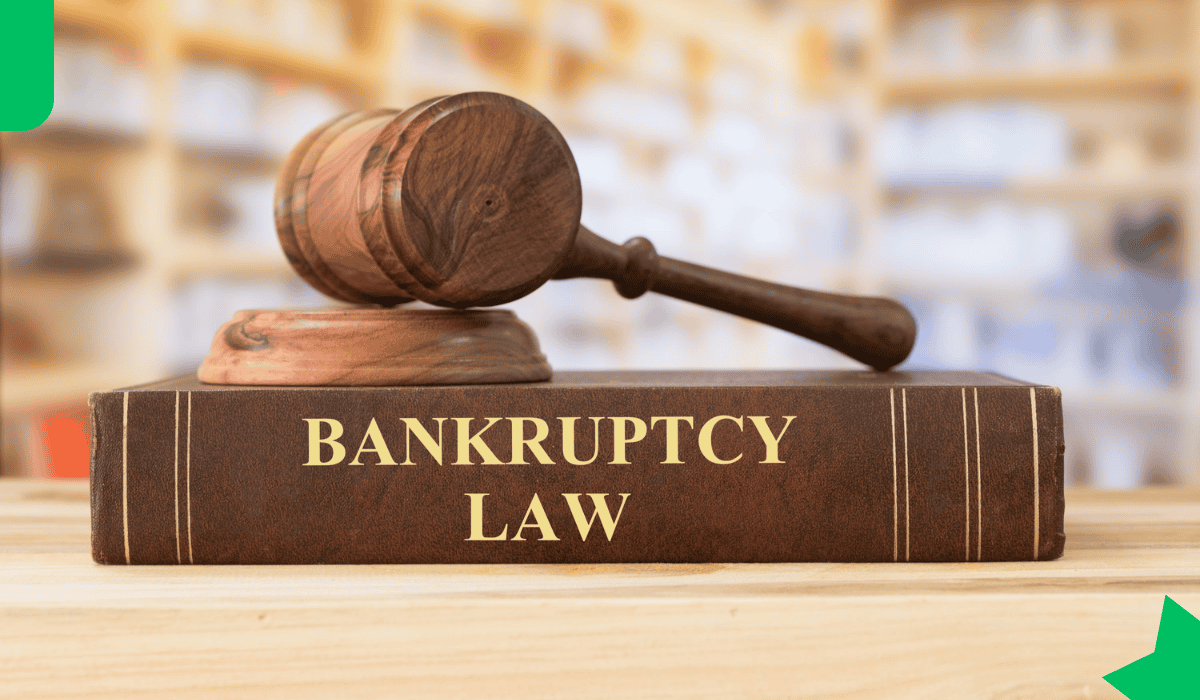In times of financial crisis, when debts spiral out of control, individuals and businesses often seek relief through bankruptcy. The process is complex and requires expert legal guidance to navigate its intricacies. This is where bankruptcy attorneys play a crucial role. These legal professionals specialize in bankruptcy law, helping clients manage, restructure, or eliminate their debts through legal means. This guide will delve into the role of bankruptcy attorneys, explore the different types of bankruptcy, and discuss the emerging trend of AI bankruptcy attorneys.
Introduction to Bankruptcy Attorneys
When individuals or businesses find themselves unable to meet financial obligations, bankruptcy can be a viable solution to address overwhelming debt. A bankruptcy attorney is a specialized legal professional who assists clients in filing for bankruptcy and navigating the complexities of the legal process. They provide crucial support in determining which type of bankruptcy is most suitable, ensuring the client’s rights are protected throughout the proceedings.
The Role of Bankruptcy Attorneys
Bankruptcy attorneys provide an essential service for those seeking debt relief through the legal system. Their role extends beyond filing paperwork; they offer legal advice, represent clients in court, and negotiate with creditors. Some key responsibilities of a bankruptcy attorney include:
- Advising on Bankruptcy Types: Attorneys help clients determine whether Chapter 7, Chapter 11, or Chapter 13 bankruptcy is appropriate based on their financial situation.
- Filing Petitions: They manage the documentation required to file a bankruptcy case, ensuring accuracy and compliance with court rules.
- Representation in Court: Bankruptcy attorneys represent their clients in court proceedings, making arguments and defending their interests.
- Negotiating with Creditors: Attorneys often negotiate with creditors to reduce debt or extend payment terms, aiming for the most favorable outcome for their client.
Common Types of Bankruptcy
There are several types of bankruptcy available under U.S. law, each designed to address different financial situations. The most common include:
- Chapter 7: Also known as liquidation bankruptcy, Chapter 7 is typically used by individuals with little to no disposable income. It involves selling non-exempt assets to pay off debts.
- Chapter 11: Primarily used by businesses, Chapter 11 allows companies to reorganize their debts while continuing operations.
- Chapter 13: Known as wage earner’s bankruptcy, Chapter 13 enables individuals to reorganize their debts and pay them off over three to five years.
Understanding which type of bankruptcy is appropriate requires the expertise of a bankruptcy attorney, who can assess the client’s financial situation and recommend the best course of action.

How to Choose a Bankruptcy Attorney
Selecting the right bankruptcy attorney is crucial for a successful case. When choosing a bankruptcy lawyer, consider the following factors:
- Experience: Look for an attorney with a proven track record in handling bankruptcy cases. Specialization in bankruptcy law ensures that the attorney is familiar with the latest laws and procedures.
- Reputation: Check for reviews, testimonials, and any disciplinary actions. A reputable attorney will have positive feedback from former clients and colleagues.
- Communication: Bankruptcy proceedings can be lengthy and complex. It’s important to work with an attorney who is responsive and communicates clearly throughout the process.
- Fees: Discuss the attorney’s fees upfront. While bankruptcy attorneys typically charge a flat fee, it’s essential to understand what services are included and if there are any additional costs.
Costs and Fees Associated with Hiring a Bankruptcy Attorney
The cost of hiring a bankruptcy attorney varies depending on the complexity of the case and the type of bankruptcy being filed. On average, attorney fees for Chapter 7 range between $1,000 and $2,500, while Chapter 13 cases can cost between $3,000 and $5,000. Chapter 11 cases, often more complex due to their business nature, can range from $15,000 to $50,000 or more.
In addition to attorney fees, clients may need to pay court filing fees, typically around $300 to $400, depending on the type of bankruptcy.
Benefits of Hiring a Bankruptcy Attorney
While it is possible to file for bankruptcy without an attorney, known as filing “pro se,” doing so is risky and often results in complications. Hiring a bankruptcy attorney offers several advantages:
- Expert Guidance: Bankruptcy attorneys provide invaluable legal guidance, ensuring the case is filed correctly and that all legal obligations are met.
- Increased Likelihood of Success: A qualified attorney can help increase the chances of a successful bankruptcy outcome, such as debt discharge or reorganization.
- Legal Protection: Attorneys protect their clients from aggressive creditors and help stop wage garnishments, foreclosure, and other collection activities through legal means.
- Stress Reduction: The bankruptcy process is stressful and emotionally taxing. An attorney takes on the burden of dealing with legal complexities, allowing clients to focus on rebuilding their financial lives.
Common Mistakes to Avoid When Filing for Bankruptcy
Filing for bankruptcy can be complicated, and mistakes can have serious consequences. Some common errors to avoid include:
- Hiding Assets: Failing to disclose assets during bankruptcy proceedings is illegal and can result in the case being dismissed or criminal charges.
- Filing the Wrong Type of Bankruptcy: Choosing the wrong type of bankruptcy can lead to unfavorable outcomes, such as losing assets or not having debts discharged.
- Filing Without an Attorney: While filing pro se may seem like a way to save money, it often leads to mistakes that can delay or jeopardize the case.
- Incurring New Debt Before Filing: Running up credit card balances or taking out loans before filing for bankruptcy can be seen as fraud and may result in the debt not being discharged.
The Bankruptcy Process: Step by Step
The bankruptcy process generally follows several key steps, though the exact procedure can vary depending on the type of bankruptcy being filed:
- Consultation with a Bankruptcy Attorney: The first step is to consult with an attorney to assess the financial situation and determine the appropriate type of bankruptcy.
- Credit Counseling: Before filing, debtors are required to complete a credit counseling course from an approved provider.
- Filing the Petition: The attorney files the bankruptcy petition with the court, along with the required schedules and financial statements.
- Automatic Stay: Once the petition is filed, an automatic stay goes into effect, halting most collection actions, including lawsuits, garnishments, and foreclosures.
- Meeting of Creditors: About a month after filing, the debtor must attend a meeting of creditors, where they will answer questions under oath.
- Discharge or Reorganization: In Chapter 7 cases, qualifying debts may be discharged after the liquidation of assets. In Chapter 13 or Chapter 11 cases, a repayment plan is implemented.
Bankruptcy Laws: An Overview
Bankruptcy laws in the United States are governed by federal statutes, primarily the Bankruptcy Code (Title 11 of the United States Code). These laws are designed to provide debt relief while ensuring creditors are treated fairly. Some key aspects of bankruptcy law include:
- Means Test: The means test is used to determine eligibility for Chapter 7 bankruptcy by comparing the debtor’s income to the median income in their state.
- Exemptions: Bankruptcy laws allow for certain exemptions, which protect specific assets, such as a primary residence or retirement accounts, from being liquidated.
- Dischargeable Debts: Not all debts are dischargeable in bankruptcy. Common non-dischargeable debts include student loans, child support, and recent tax debts.
Bankruptcy Attorneys for Individuals vs. Businesses
The legal needs of individuals and businesses in bankruptcy differ significantly, and bankruptcy attorneys often specialize in one or the other.
- Individuals: Attorneys representing individuals typically handle Chapter 7 and Chapter 13 cases, helping clients discharge or reorganize personal debts.
- Businesses: Business bankruptcy attorneys often handle Chapter 11 cases, which involve reorganizing a company’s debts while allowing it to continue operations. These cases are more complex and require specialized legal expertise.
The Rise of AI Bankruptcy Attorneys
As technology continues to advance, artificial intelligence (AI) is making its way into the legal field, including bankruptcy law. AI bankruptcy attorneys are a relatively new concept but offer exciting possibilities for the future of legal services. AI-powered platforms can assist with tasks such as:
- Automating Legal Research: AI can quickly analyze vast amounts of legal data, helping attorneys find relevant case law and statutes more efficiently.
- Drafting Legal Documents: AI tools can automate the preparation of bankruptcy petitions, schedules, and other required documents, reducing the time and effort involved.
- Predictive Analytics: AI can analyze historical data to predict the likely outcomes of bankruptcy cases, providing valuable insights for both attorneys and clients.
How AI is Revolutionizing Bankruptcy Law
AI is transforming bankruptcy law by making the process more accessible and efficient. Some key ways AI is impacting the field include:
- Cost Reduction: AI can automate many routine tasks, reducing the time attorneys spend on each case and lowering costs for clients.
- Enhanced Accuracy: AI tools can reduce human error in preparing legal documents, ensuring that petitions and schedules are accurate and complete.
- 24/7 Availability: AI-powered legal platforms are available around the clock, providing clients with access to legal information and assistance at any time.
Comparing Traditional Bankruptcy Attorneys with AI Attorneys
While AI bankruptcy attorneys offer many advantages, they cannot fully replace human attorneys. Here’s how the two compare:
- Human Attorneys: Offer personalized legal advice, represent clients in court, and handle complex negotiations with creditors.
- AI Attorneys: Excel at automating routine tasks, providing legal research, and offering cost-effective solutions for straightforward cases.
For complex bankruptcy cases, traditional attorneys are still essential, but AI tools can complement their services, improving efficiency and accuracy.
Future of AI in Bankruptcy Law
The future of AI in bankruptcy law looks promising. As AI technology continues to evolve, it is likely that more sophisticated AI tools will be developed to handle even more complex aspects of bankruptcy cases. This could lead to:
- Increased Access to Legal Services: AI could make bankruptcy services more affordable and accessible to individuals and small businesses who might not otherwise be able to afford legal representation.
- Improved Case Outcomes: By leveraging AI’s predictive analytics capabilities, attorneys could achieve better outcomes for their clients by anticipating how courts and creditors will respond to various strategies.
Conclusion: The Importance of Expert Legal Support
Bankruptcy is a complex legal process that requires expert guidance. Whether you are an individual or a business, hiring a bankruptcy attorney is essential to navigating the legal landscape, protecting your assets, and ensuring a successful outcome. As AI continues to reshape the legal field, the role of bankruptcy attorneys will evolve, but the need for skilled legal professionals will remain. By combining the expertise of human attorneys with the efficiency of AI, clients can benefit from the best of both worlds as they work toward financial recovery.
Countdown Timer
30
Your Code: FACT10AI
- 10 Essential Facts You Must Know About Bankruptcy Attorneys in 2024 - September 4, 2024
- Top Divorce Lawyers: Expert Guidance and the Rise of AI Divorce Lawyers - September 4, 2024
- The Ultimate Guide to Personal Injury Attorneys - September 4, 2024








